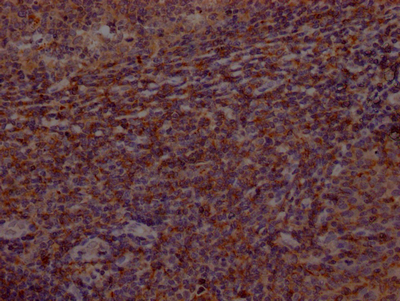To create the BTK recombinant monoclonal antibody, multiple intricate steps are involved. The process commences with the extraction of the BTK monoclonal antibody and the sequencing of its genetic code. After that, a vector containing the BTK monoclonal antibody gene is constructed and transfected into a host cell line for culture purposes. A synthesized peptide derived from human BTK is used to initiate the production of BTK monoclonal antibodies. The resulting BTK recombinant monoclonal antibody undergoes purification through affinity chromatography to ensure high purity. Finally, this antibody is validated through ELISA and IHC assays to confirm its ability to recognize BTK. It only detects human BTK protein.
BTK is a non-receptor tyrosine kinase that plays a key role in B-cell development and activation. BTK is required for normal B-cell development and maturation. BTK deficiency causes a rare genetic disorder known as X-linked agammaglobulinemia (XLA), in which affected individuals lack mature B cells and are unable to produce immunoglobulins, which are critical for humoral immunity. BTK is also involved in the signaling pathways that regulate B-cell activation in response to antigen stimulation. Upon binding of antigens to the BCR, BTK is activated and initiates downstream signaling pathways that lead to B-cell proliferation, differentiation, and antibody production. BTK plays a role in various immune responses, including the production of cytokines and chemokines, and the recruitment of immune cells to sites of inflammation. Dysregulation of BTK expression or function has been implicated in the development and progression of various types of cancer, including B-cell malignancies.






